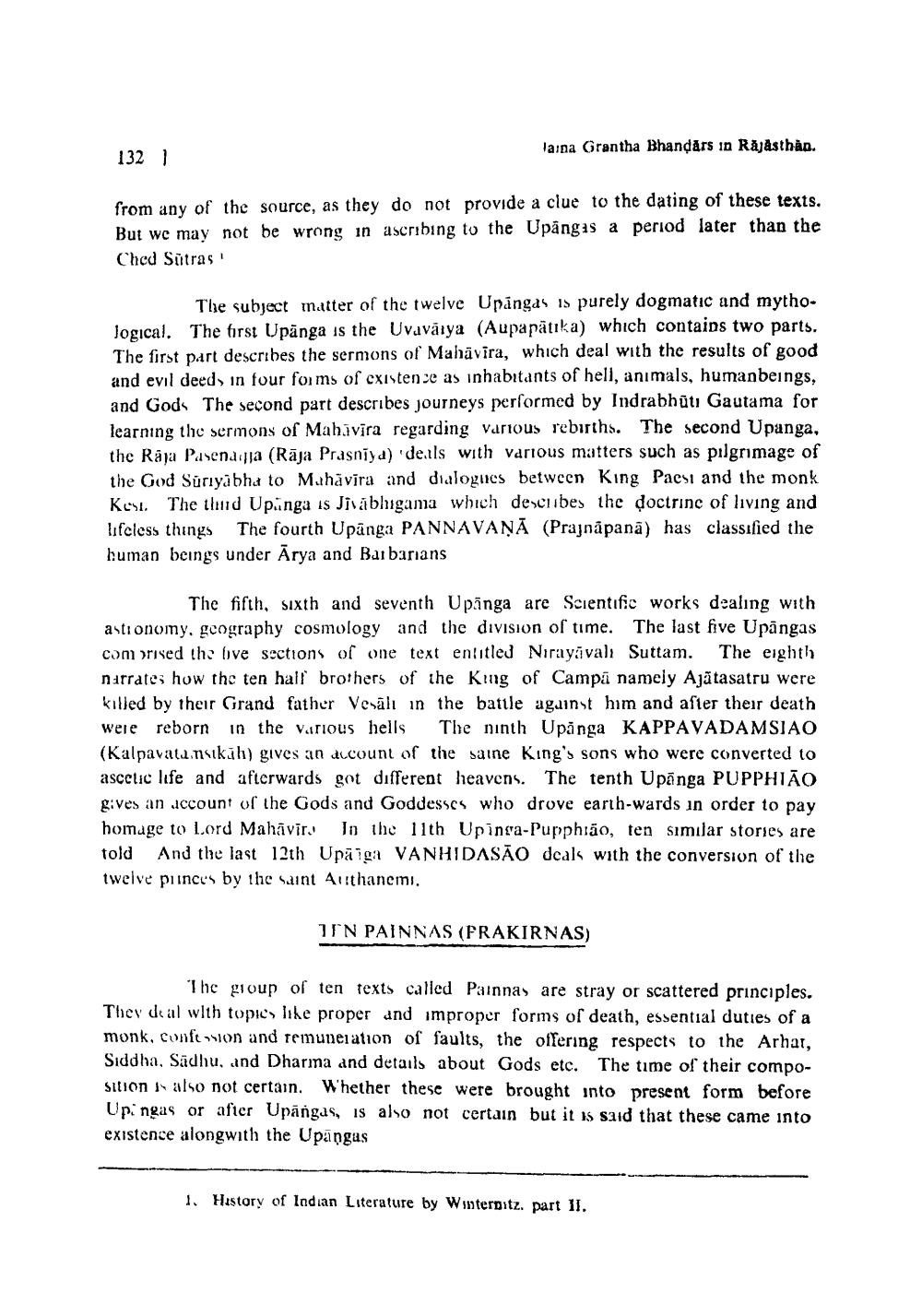________________
132 1
Jana Grantha Bhandārs in Rajasthan.
from any of the source, as they do not provide a clue to the dating of these texts. But we may not be wrong in ascribing to the Upangis a period later than the Chod Sutras
The subject matter of the twelve Upāngas is purely dogmatic and mytho. logical. The first Upānga is the Uvavāıya (Aupapätıka) which contains two parts. The first part describes the sermons of Mahavira, which deal with the results of good and evil deeds in four forms of existence as inhabitants of hell, animals, humanbeings, and Gods The second part describes journeys performed by Indrabhūti Gautama for learning the sermons of Mahīvira regarding various rebirths. The second Upanga, the Raja Pasenapa (Rāja Prasniya) deals with various matters such as pilgrimage of the God Suriyabha to Muhāvīra and dialogues between King Paesi and the monk Kost. The thd Upinga is Jiväbhigama which descubes the doctrine of living and lifeless things the fourth Upanga PANNAVAŅĀ (Prajnapanā) has classified the human beings under Ārya and Barbarians
The fifth, sixth and seventh Upānga are Scientific works dealing with astronomy, geography cosmology and the division of time. The last five Upāngas com brised the ove sections of one text entitled Nirayāvalı Suttam. The eighth narrates how the ten hall brothers of the King of Campā namely Ajātasatru were killed by their Grand father Vesāli in the battle against him and after their death were reborn in the various hells The ninth Upånga KAPPAVADAMSIAO (Kalpavatanskih) gives an account of the saine King's sons who were converted to ascetic life and afterwards got different heavens. The tenth Upānga PUPPHIÃO gives an account of the Gods and Goddesses who drove earth-wards in order to pay homage to Lord Mahāvīru Io the 11th Upinga-Pupphião, ten similar stories are told And the last 12th Upanga VANHIDASÃO deals with the conversion of the twelve punces by the saint Althanemi.
IIN PAINNAS (PRAKIRNAS)
The group of ten texts called Painnas are stray or scattered principles. They deal with tople like proper and improper forms of death, essential duties of a monk, confession and remuneration of faults, the offering respects to the Arhat, Siddha, Sadhu, and Dharma and details about Gods etc. The time of their composition is also not certain. Whether these were brought into present form before Upingas or after Upangas, is also not certain but it is said that these came into existence alongwith the Upangas
1. History of Indian Literature by Winterditz. part II.




